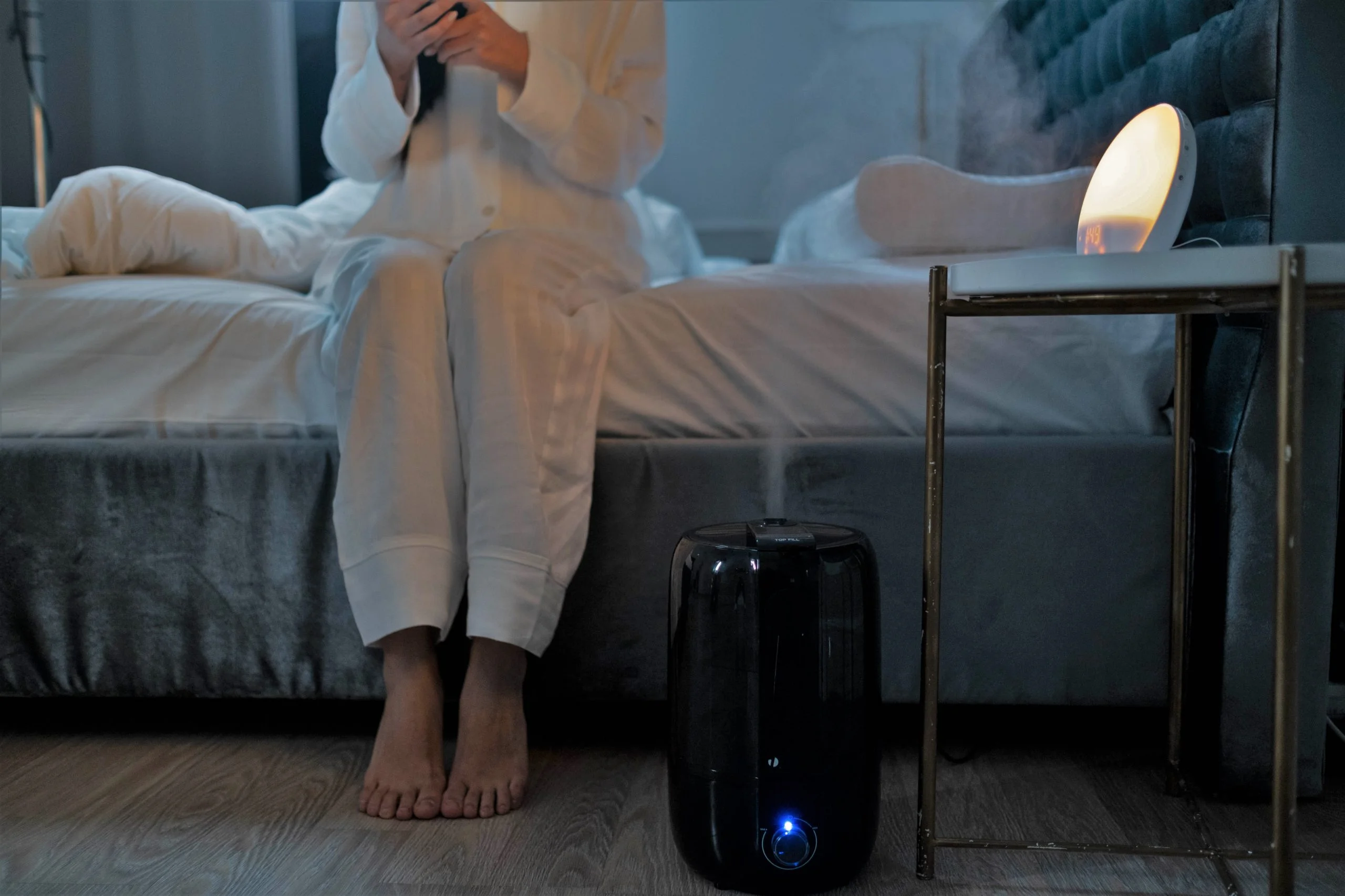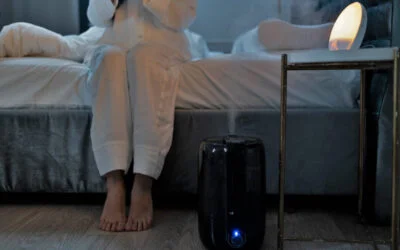It’s important to keep your home well-heated during the winter months to avoid freezing pipes and other potential damage, as well as to look after your health. But with low temperatures comes the frequent use of heating systems, and although central heating is a convenient way to heat your home, it isn’t without its problems.
Despite its warmth like a cosy hug, the air is dry, and the more you rely on that warm air to heat your home, the drier all the air in your home becomes. Lower humidity levels can affect how well we sleep and how we feel when we wake up. Dry winter air can cause your indoor humidity to drop to around 15% or less, which may cause problems that can affect your health, your home and your comfort. Try to keep it to between about 30-50%.
Do you wake up with a sore throat or feeling stuffy?
Too little humidity isn’t good for sleep either. Dry air can lead to irritated nasal passages, sneezing, coughing, itchy throat, dry skin and lips and exacerbating asthma symptoms and even increasing suffering from colds and other viruses. All of them in turn can impact adversely on sleep, including leading to more snoring.
How to prevent dry air in the bedroom:
You can’t control the weather, but you can control how the humidity level affects your bedroom. To ensure the best sleep possible, aim to keep the humidity level in your bedroom at about 30-50% year-round. (You don’t want to go too far the other way!)
Five ways you can prevent dry air in the bedroom:
- Invest in a humidifier for the winter
- Use a higher tog duvet or several layers plus hot water bottles and/or bed socks rather than cranking the heating up (which adds warmth but decreases moisture further)
- Add moisture to the air by placing a large bowl of water near the radiator
- Hang wet/damp clothes to dry in your bedroom
- Keep a few houseplants in the bedroom (moisture evaporates from the leaves)






0 Comments